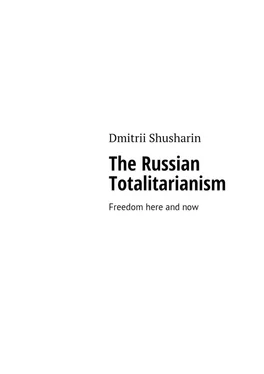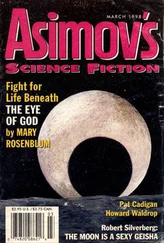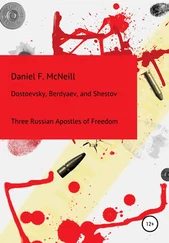Reality is always a challenge to those trying to create social knowledge. And the challenges of the present time are not the same as ten years ago, when the globalization and information revolution were universally and enthusiastically welcomed. Those were the hopeful days when people believed that universal mobility would dissolve the perennial problems associated with national peculiarities, ethnic and cultural isolation, and the incompatible civilizations would be reconciled even with societies that have no desire to lose their identity organically formed within their original nation states.
Have they really found the right word?
Until Russian attack on Ukraine it seemed that the most accurate term describing the political system in our country was the word neo-totalitarianism.
As it happens often, a researcher introduces a new term, even substantiates it, but the concept does not catch on and becomes useless as a research tool. This happened to be also the story of neo-totalitarianism. It has been very actively used in the description of the modern information society with its potential for total control, but rarely for the characteristics of the system, which has evolved in some countries of Central and Eastern Europe over the past twenty years.
Meanwhile, it was precisely for the description of these countries that the concept of “neo-totalitarianism” was proposed. This was done in the second half of the nineties of the last century by the Serbian scholar Zoran Vidojevic in one of his books 11 11 Vidojevic Z. Tranzicija, restauracija i neototalitarizam. – Beograd, 1997.
. The book, having been abundantly referred to in Russia 12 12 Russia and the modern world, Issue 3 (20), 1998 ( http://www.inion.ru/product/russia/vidoevich.htm )
, was quickly forgotten. Now the right time has come to bring it back.
From Vidojevic’s point of view, the post-socialist neo-totalitarianism is a historical innovation: an authoritarian system evolves into a totalitarian mode, but more often it presents itself in a pseudo-democratic (pseudo-parliamentary, pseudo-pluralistic) form. According to Vidojevic, one of the guilty parties in bringing totalitarianism to power was the superficial liberal optimism. In his opinion, the modern superficial liberalism of the past was responsible for the emergence of Fascism and Nazism.
The forecast of the Serbian scholar about the forming of neo-totalitarian society. is the most applicable to the current period. In the second half of the 90ies he assumed that post-socialist neo-totalitarianism, while avoiding the mass terror, will nevertheless seek to establish full control over the masses. From Vidojevic’s point of view, the transformation of the individual post-socialist societies in the direction of establishing neo-totalitarianism would be the most dangerous and regressive phenomenon. According to him, the totalitarian system cannot be transformed into a democratic one. The belief in the possibility of such a transformation, he argues, has led to the spread of false theory of the transition period, according to which, in the countries of the so-called real socialism a democracy surely must emerge after communist totalitarianism. And, to make it happen, between totalitarian and democratic systems there must be an intermediate link – the authoritarian system. And only after the disintegration of the latter there comes the time for pre-democracy, followed by the full-fledged democratic system.
However, says Vidojevic, social changes may flow in the opposite direction, from pre-democracy to neo-totalitarianism with the same intermediary – an authoritarian rule. All totalitarian periods are preceded by a Bonapartist or authoritarian rule. This is the road to unlimited one-person rule, an essential component of neo-totalitarianism.
Same as the former socialist totalitarianism, its new post-socialist model can’t allow democratic pluralism, neither political nor ideological. But according to Vidojevic, “weak and strictly controlled ideological and political pluralism is needed to camouflage the new totalitarianism’s true colors.”
Concluding the analysis of trends in neo-totalitarianism in a post-socialist country the Serbian scholar highlights the most essential characteristics of the phenomenon:
The essence of the totalitarian rule is disguised with pseudo-democratic institutions
– Factually one-party political monopoly under a fictitious multi-party system.
– Uncontrolled power of the leader, his irremovability and unaccountability, the new cult of personality.
– The monopoly on the main mass media and informal censorship of information about real state of affairs in the country and society.
– Forcible total privatization, larcenous appropriation, subordination of the economy under mafia protection racket, arbitrary preservation of state property and forcible retention of the main sectors of the economy in the interests of the ruling class.
– Intimidation of political opponents, political assassinations, the elimination (including physical) those who represent a threat to the interests of the government and its related entities of sometimes illegitimate nature, or attempt to resist the extreme and aggressive religious fanaticism.
– Legal, economic defenselessness and insecurity of the masses, their lack of confidence, as the first person of the state keeps distance from them.
Once again, I must remind, this was articulated back in 1997. It is characteristic for totalitarianism, says the book, that it is ingrown and accepted by all of the major social groups, from top to bottom of the social pyramid. Indoctrination of the masses with totalitarian mentality, their consolidation into one aggressive “We” can happen under condition of abundance of wealth and relative prosperity of the greater society. According to Vidojevic, depersonalization and purposelessness of life, lack of interest in anything except material well-being, fatigue from the race for all kinds of earthly goods, the aggressive spirit, engrained in the society, all this makes it objectively possible to establish postindustrial totalitarianism.
What the classical and post-modern totalitarianism have in common is the enslavement of the mind that in the latter continues to deepen due to the unprecedented development of the media.
Vidojevic maintains that the Neo-totalitarianism cannot affirm itself under the banner of a new Auschwitz or the Gulag. However, it can act under the sign of persecution of every kind of otherness and non-conformism, destroying other people’s freedom with violent imposition of its own values.
Extremist movements, right- or left-wing, organized into appropriate movements and parties, constitute the first step towards totalitarianism. According to Vidojevic, if one of the prerequisites of post-socialist totalitarianism is the inherited mentality of loyal obedient subjects, accustomed to strict order and hierarchy in society and state, the post-modern totalitarianism in developed capitalist societies, among other factors, stems from the mentality of a happy idiot or a robot.
It is easy to notice that the latter goes back to the tradition of describing a totalitarian society, associated with the names of Aldous Huxley 13 13 Auldous Huxley, Brave New World, Saint Petersburg, 1999 (Russian translation)! 4 Postman, Neil . Amusing Ourselves to Death: Public Discourse in the Age of Show Business. NY, 1985.
and Neil Postman, not George Orwell. The brave new world where people amuse themselves to death, provides much greater opportunities for control over them than watchful screens and the ministries of love or truth. This is where we can see the contact zone between democratic and potentially totalitarian countries.
Читать дальше












